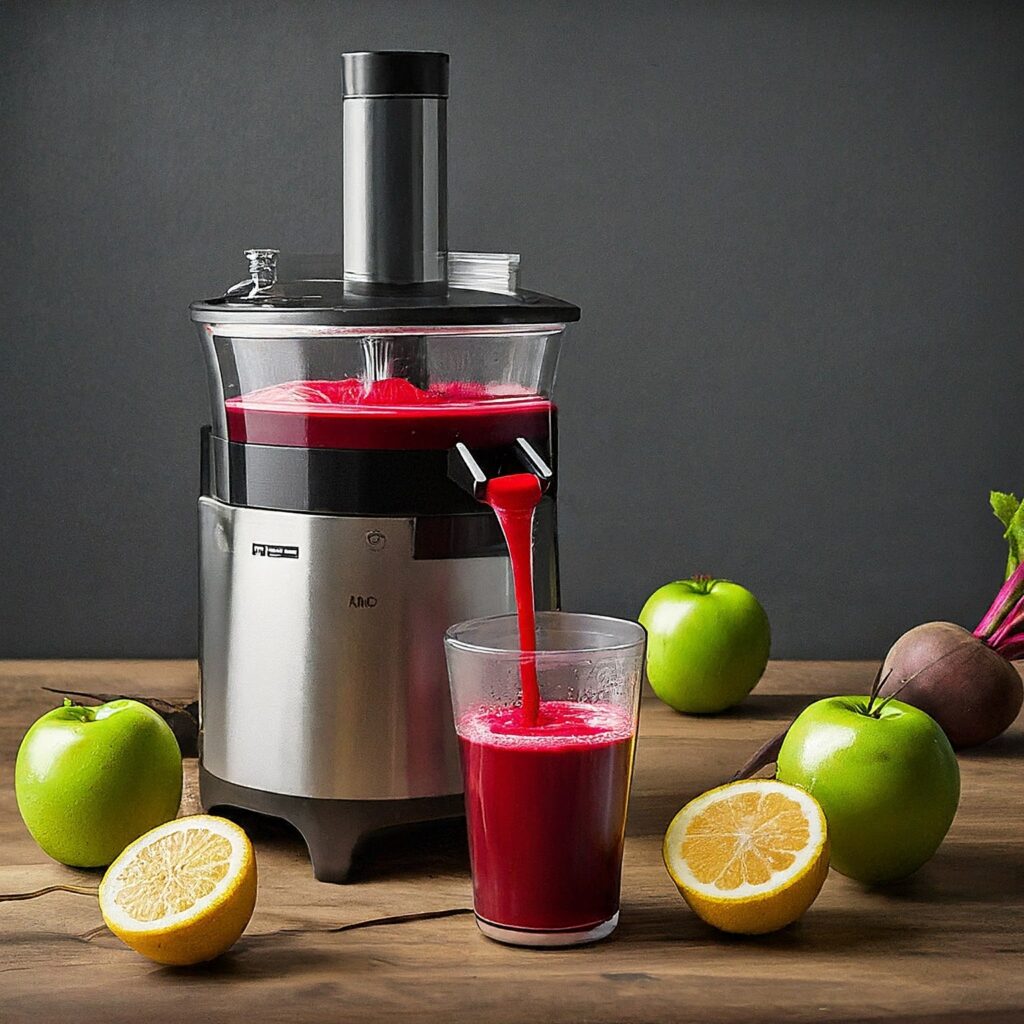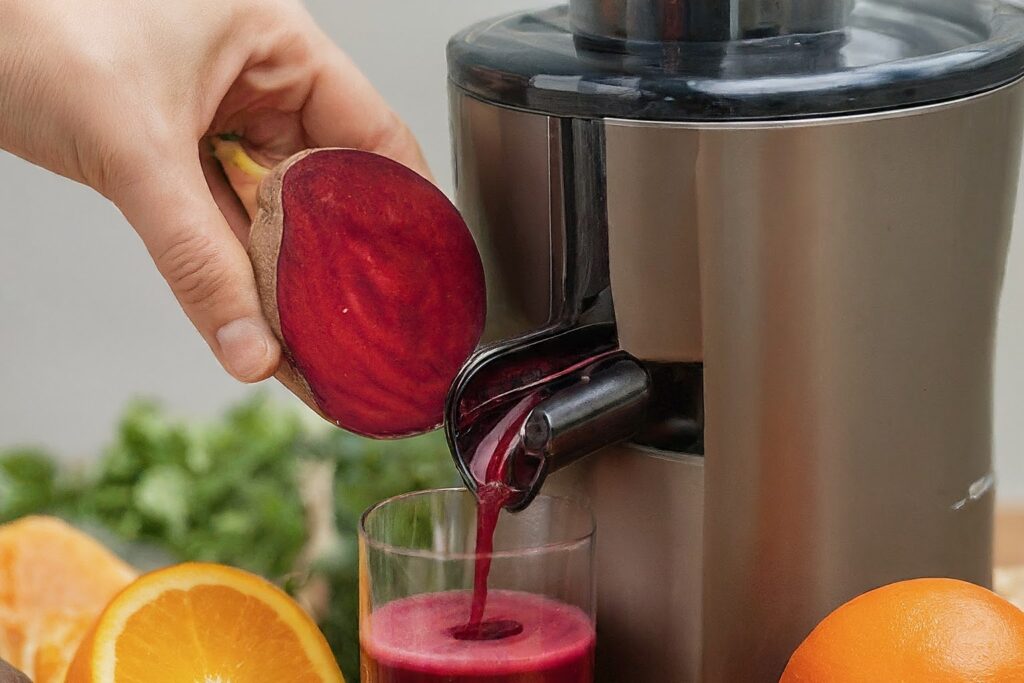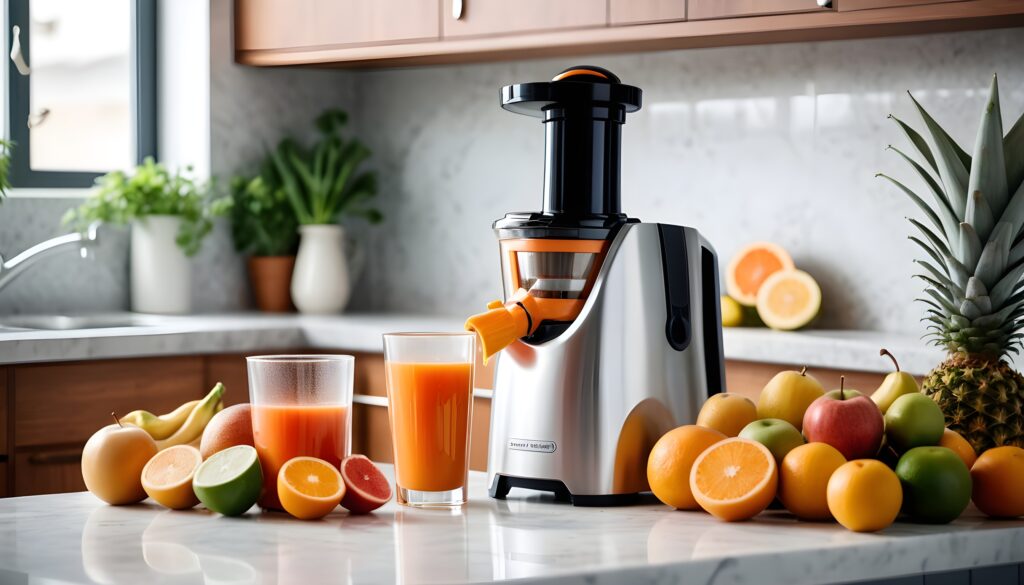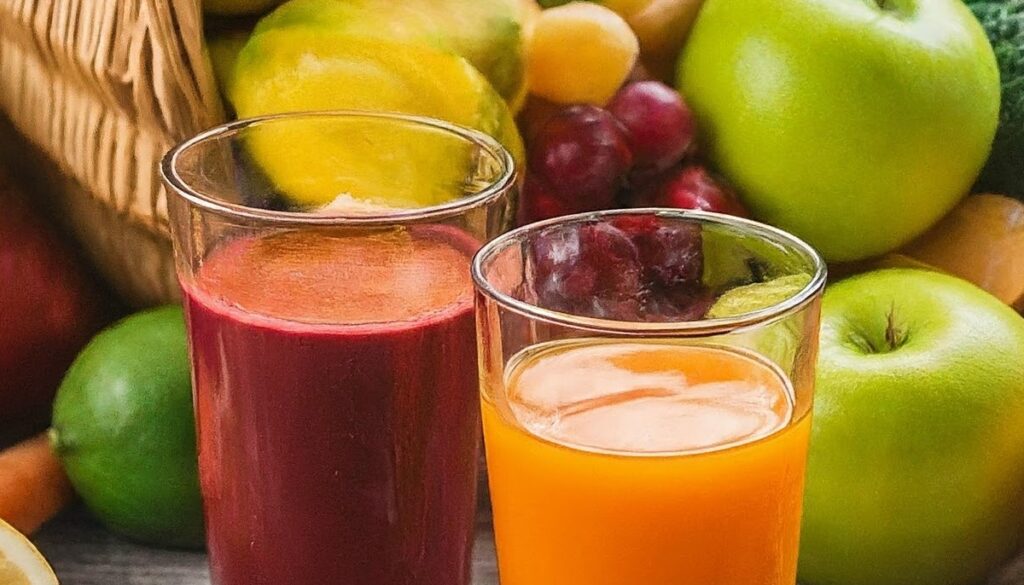Beets, those vibrant ruby red root vegetables, aren’t just beautiful to look at; they’re packed with essential nutrients! Beet juice, a concentrated source of these nutrients, has gained popularity for its potential health benefits. But how do you unlock the goodness within these earthy vegetables? This article dives deep into the world of beet juice, exploring its potential health benefits, the best way to how to juice beets in a juicer, and tips for maximizing the flavor and health impact of your homemade beet juice.
Beet Juice: A Nutritional Powerhouse
Beets are a rich source of vitamins, minerals, and antioxidants. Some of the key nutrients found in beet juice include:

- Vitamins: A, C, and B complex vitamins, including folate.
- Minerals: Potassium, magnesium, iron, and manganese.
- Antioxidants: Betalains, a unique group of antioxidants responsible for the vibrant red color of beets, along with nitrates and carotenoids.
- These nutrients contribute to a variety of potential health benefits, which we’ll explore in the next section.
Uncovering the Potential Medical advantages of Beet Juice
Beet juice has been linked to several potential health benefits, although some require further research. Here’s a glimpse into what science suggests:
- Improved Blood Pressure: Nitrates in beetroot are converted to nitric oxide in the body, which helps relax blood vessels, potentially lowering blood pressure. Studies suggest beet juice may be beneficial for those with high blood pressure [2].
- Enhanced Athletic Performance: Nitric oxide may also improve blood flow and oxygen delivery to muscles, potentially boosting exercise performance [3]. Athletes have used beet juice for this purpose, although research results are mixed [4].
- Antioxidant Powerhouse: Beets are rich in antioxidants like betalains, which may help fight inflammation and protect cells from damage [5].
- Dietary Fiber for Digestion: While juicing removes some fiber, beet juice still contains some soluble fiber, which can aid digestion [6].
- It’s important to note that these are potential benefits, and further research is needed to fully understand the impact of beet juice on health. Additionally, consulting your doctor before adding beet juice to your diet is crucial, especially if you have any underlying health conditions or take medications.
How to Juice Beets in a Juicer: A Step-by-Step Guide
Ready to unlock the goodness of beets with a homemade juice? Here’s a simple guide on how to juice beets in a juicer:
Ingredients:
- 2-3 medium beets, washed and trimmed
- 1 apple (optional, for sweetness)
- 1 carrot (optional, for additional nutrients)
- 1/2 lemon (optional, for a tangy twist)
Equipment:
- Juicer
- Cutting board
- Knife
- Glass for serving
Instructions
- Wash and prepare the beets: Wash the beets thoroughly under running water. Trim off the tops and greens, leaving about an inch of stem. You can peel the beets if desired, but some nutrients reside in the skin, so consider leaving it on for extra oomph.
- Prepare other fruits and vegetables (optional): Wash and chop any fruits or vegetables you’re adding to your juice blend.
- Juice the beets: Here’s the key step on how to juice beets in a juicer! Cut the beets into quarters or smaller pieces to fit comfortably in your juicer’s feed chute. Turn on your juicer and start feeding the beets through the chute, one piece at a time.
- Incorporate other ingredients (optional): If using other fruits or vegetables, alternate feeding them with the beets for a more balanced flavor.
- Enjoy! Pour the fresh beet juice into a glass and enjoy it immediately. You can add a squeeze of lemon or a pinch of ginger for a flavor boost.
Tips:
- Start slow: Beet juice can have a strong earthy flavor. Begin with a smaller amount (like half a beet) and gradually increase as you get accustomed to the taste.
- Mix and match: Experiment with different fruits and vegetables to create your favorite flavor combinations. Apples, carrots, oranges, and ginger are some popular choices that pair well with beets.
- Fresh is best: Use fresh, firm beets for the most flavorful juice.
- Storage: Beet juice is best enjoyed fresh. If storing is necessary, keep it in an airtight container in the refrigerator for up to 24 hours. However, note that the flavor and nutritional value may degrade over time.
Maximizing the Health Benefits of Your Beet Juice
Here are some additional tips to maximize the health benefits of your beet juice:
- Focus on balance: While beets offer a wealth of nutrients, don’t rely solely on beet juice for your daily intake. Aim for a well-rounded diet that includes a variety of fruits, vegetables, whole grains, and lean proteins.
- Consider the fiber factor: Juicing removes most of the fiber from fruits and vegetables. While beet juice still offers some soluble fiber, incorporating whole beets into your diet provides the additional benefit of insoluble fiber, which promotes gut health and digestion.
- Mind the sugar content: Beets contain natural sugars. While healthy in moderation, consider diluting your beet juice with water or adding low-sugar fruits like apples or berries to manage the overall sugar content.
- Portion control is key: Beet juice is a concentrated source of nutrients, and a little goes a long way. Start with a small serving (4-6 ounces) and see how you feel before increasing your intake.
- Consult your doctor: If you have any underlying health conditions, take medications, or are pregnant or breastfeeding, talk to your doctor before adding beet juice to your diet. Beet juice may interact with certain medications or be unsuitable for specific health situations.
Beyond the Juice: Exploring the Versatility of Beets
Beets are a versatile vegetable, and juicing isn’t the only way to enjoy their health benefits. Here are some other ways to incorporate beets into your diet
- Roasting: Roasting beets brings out their natural sweetness. Toss them with olive oil, herbs, and spices for a delicious and nutritious side dish.
- Salads: Shredded or diced beets add a vibrant color and earthy flavor to salads. Pair them with goat cheese, walnuts, and a balsamic vinaigrette for a delightful combination.
- Soups and stews: Beets add a vibrant color and earthy depth to soups and stews.
- Hummus: Roasted beets can be blended into hummus for a unique and flavorful twist.
- By exploring different ways to enjoy beets, you can reap the benefits of this versatile vegetable and keep your meals interesting.
Conclusion: Beet Juice and Beyond!
Beet juice, packed with essential nutrients and potential health benefits, can be a valuable addition to a well-balanced diet. Understanding how to juice beets in a juicer empowers you to create your own healthy and delicious beverage. Remember, moderation and a focus on dietary balance are key. But most importantly, have fun experimenting with different flavors and incorporating beets into your culinary creations.
You can find the best juicer. for that you need to read the below post.
From Pulp to Power: Revolutionise Your Health with the Best Juicer Picks!


